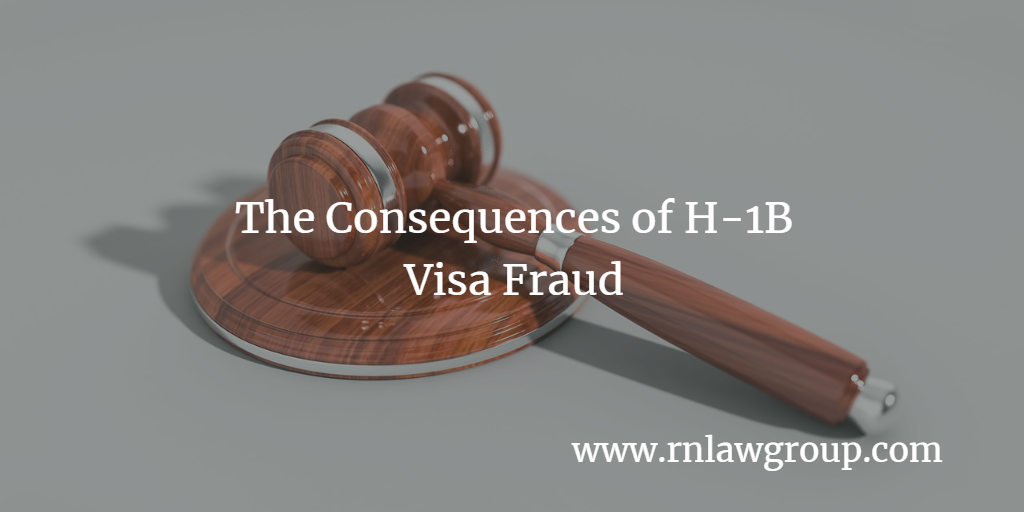
The Consequences of H-1B Visa Fraud
The most common, if not most important, question posited to an immigration attorney is always some variation of is this legal? Those who bother to ask are at least putting themselves in a better situation to make the right decision regarding their business and employees. However, there are individuals who choose to flaunt immigration laws under the guise that they will never be punished for their actions. The recent sentencing of Kishore Kumar Kavuru proves that is not the case.
On May 24, 2021, Mr. Kavuru pled guilty to one visa fraud which occurred from 2009 to 2017. He has admitted to owning four staffing companies (Scopus Consulting Group, Inc., ITECH Analyst Corp, Infinity Methods Corp, and Orian Engineers Incorporated), seven alleged end-clients, and using a plethora of foreign workers to submit over one hundred fraudulent visa applications over the course of eight years. These fraudulent applications yielded Mr. Kavuru over $1.5 million dollars in fraudulent proceeds. His scheme involved filing H-1B petitions in which he would allegedly place a Beneficiary at an end-client company that either did not exist or did not intend to use the H-1B worker. Once the H-1B was approved, Mr. Kavuru would unlawfully “bench” the employee without pay until a real project became available. This action alone constituted a direct violation of DOL (Department of Labor) policy. Additionally, Kavuru forced employees to pay him for their visa application, yet another violation of DOL policy. In an attempt to hide his actions Mr. Kavuru would instruct his employees to claim these fees, ranging from $2,000 to $4,000, were payments made for training courses
.Case Sentencing Memo: Kavuru Sentencing
The reason Mr. Kavuru gave these instructions was because he was aware that his actions were illegal. He had already run afoul of DOL several times in the past. In 2008, DOL investigations concluded one of his companies had likely failed to pay the correct prevailing wage while some H-1B workers were benched. In 2011-2013 another of Mr. Kavuru’s companies willfully misrepresented the prevailing wage level on the LCA by filing for non-entry-level positions as wage level one. He was also caught unlawfully benching employees and forcing them to pay for their own H-1B petitions.
As a result of his actions Mr. Kavuru has been sentenced to fifteen months in prison and has been ordered to forfeit a monetary judgment of over half a million dollars. The sentence has been handed out in an attempt to deter others from committing similar acts in the future. Reddy and Neumann would like to advise any current or future H-1B employer that the following acts are not permissible when hiring an H-1B worker:
- Filing an H-1B petition when no actual work is available;
- Filing an H-1B petition with a level one wage for a non-entry-level position;
- Requiring an H-1B employee to pay for their H-1B filing; and
- Benching an H-1B employee without pay.
If you would like additional guidance on what is and is not permissible when employing an H-1B holder we suggest setting up a consultation with one of our licensed attorneys. Additionally, if you are worried your company might have performed any of the above-stated infractions we strongly recommend speaking to an attorney. Ignoring the issue could result in significant financial penalties and even possible jail time.
